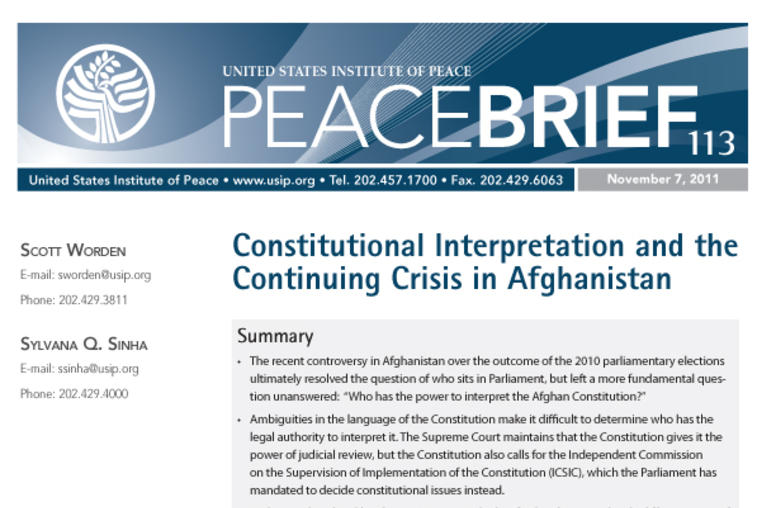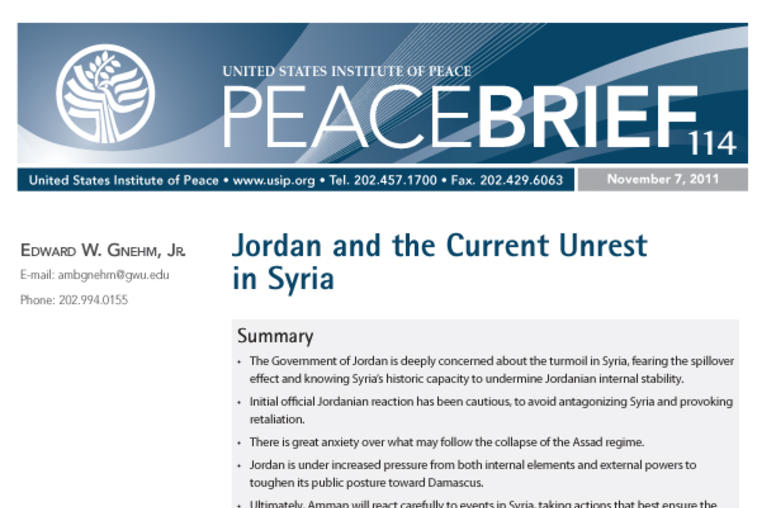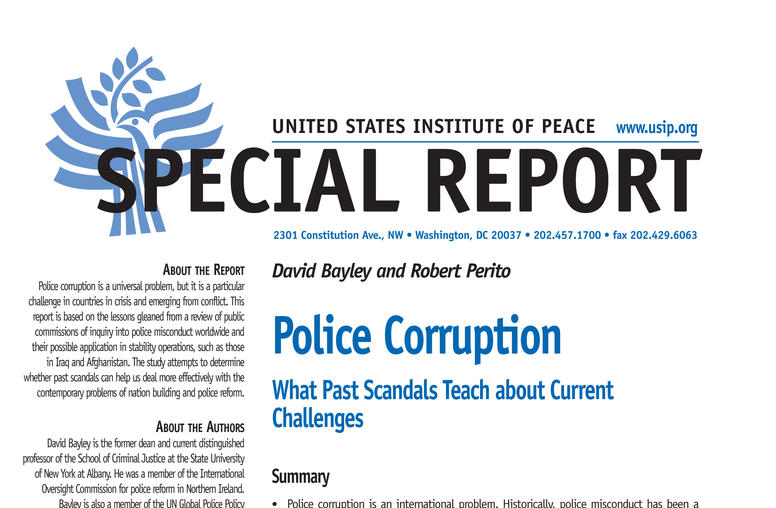Question And Answer
Publications
Articles, publications, books, tools and multimedia features from the U.S. Institute of Peace provide the latest news, analysis, research findings, practitioner guides and reports, all related to the conflict zones and issues that are at the center of the Institute’s work to prevent and reduce violent conflict.
"Rewiring Regional Security in a Fragmented World"
What changes have led to a rewiring of regional security, and what do you mean by “rewiring”? How have views of security expanded during the past twenty years? Why is it so important to look at security challenges from a regional perspective?

Constitutional Interpretation and the Continuing Crisis in Afghanistan
This Peace Brief reports on controversies surrounding interpretation of the 2004 Afghanistan Constitution, which have created a crisis of confidence in the rule of law that the authors argue must be resolved for national reconciliation to occur.
The Arab-Israeli Peace Process: Why It’s Failed Thus Far
The Arab-Israeli peace process has failed for 16 years, in part because past presidents have either been “over involved” or “under involved,” according to foreign policy scholar Aaron David Miller. “We have not yet found the right balance for American diplomacy,” he said at a USIP event on the peace process Nov. 2, one of several panels that focused on the prospects for peace in the Middle East.
At USIP, Baker Calls for American 'Determination' on Mideast Peace
Though there will be no breakthroughs on Middle East peace over the coming American election year, U.S. leaders will need to summon the “political will and determination” to again take up the vexing quest for an Arab-Israeli peace settlement when political conditions in the region allow, former Secretary of State James A. Baker, III, told a conference at USIP on November 2, 2011.
Eye on USIP's Religion and Peacemaking Center
Religion is often seen as the cause of strife around the globe, but in reality, it can provide the foundation for what helps to end conflict. USIP’s work, from Indonesia to Pakistan, demonstrates that religion can play a positive role in managing conflict. USIP’s David Smock, senior vice president for the Centers of Innovation, explores the issue in this brief question-and-answer.
A Troubled Palestinian Economy
Palestinians have not yet been able to build “the foundations of a sustainable economy,” Mohammad Mustafa, chairman and CEO of The Palestine Investment Fund, told an audience at the “Twenty Years after Madrid” conference at the United States Institute of Peace on Nov 2.
The Arab Spring and Mideast Peace
The Arab Spring may ultimately foster Arab-Israeli peace efforts if those populist uprisings lead to stable democracies, but in the short run these history-making events are more likely to inhibit steps toward peace. That note of caution emerged from several panelists at a Nov. 2 session on “Arab World Transitions”—part of a day-long conference co-sponsored by the United States Institute of Peace (USIP) and the James A. Baker III Institute for Public Policy at Rice University.

Jordan and the Current Unrest in Syria
The Government of Jordan is deeply concerned about the turmoil in Syria, fearing the spillover effect and knowing Syria’s historic capacity to undermine Jordanian internal stability. Edward Gnehm, the Kuwait Professor of Gulf and Arabian Affairs at the George Washington University, looks at the impact the turmoil in Syria could have on Jordan.
Iran, Nuclear Weapons, and the IAEA
This week, the International Atomic Energy Agency (IAEA) is scheduled to release a report on the status of Iran’s nuclear weapons program. USIP’s Dan Brumberg discusses the possible impact of the report.

Police Corruption
Police corruption is a universal problem, but it is a particular challenge in countries in crisis and emerging from conflict. This report is based on the lessons gleaned from a review of public commissions of inquiry into police misconduct worldwide and their possible application in stability operations, such as those in Iraq and Afghanistan.